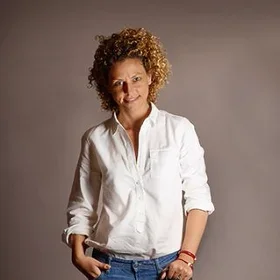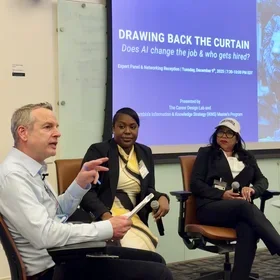For our April Narrative Medicine Rounds, we welcomed Rashad Robinson, President of Color Of Change, a leading online racial justice organization. Driven by more than 1.4 million members working to build political and cultural power for Black communities, Color Of Change is creating a more human and less hostile world for all people in America.
Color Of Change uses an innovative combination of technology, research, media-savvy and local community engagement to build powerful movements and change the industries that affect Black people’s lives: in Silicon Valley, Hollywood, Wall Street, Washington, prosecutor offices, capitol hills and city halls around the country.
Rashad has led the organization in developing cutting-edge strategies to accelerate reform in the criminal justice system and win justice for its victims, increase electoral participation, cut off corporate support for right-wing organizations, and change the representation of Black people and social issues in news and entertainment media.
Notable victories include redefining the role of local prosecutors, moving over a dozen prosecutors and candidates to reduce mass incarceration and police violence through changes in practice and policy such as ending money bail; forcing over 100 corporations to pull out of the secretive right-wing policy shop, ALEC, following the murder of Trayvon Martin; successfully pressuring corporate leaders to abandon the Trump Business Council and stop enabling the growth of white nationalist groups through their services; framing and winning the federal protection of net neutrality as a key civil rights issue; changing hiring practices in Hollywood, as well as the representation of both race and the criminal justice system; working with Airbnb, Google and Facebook to identify and implement policies for diversity in hiring, eliminate racist and inaccurate content from their platforms and prevent predatory advertising; and forcing Pat Buchanan and Bill O’Reilly off the air.
Under Rashad’s leadership, Color Of Change has grown by a million members and dozens of staff, expanded to four offices across the country and has exponentially increased pathways for people to pursue racial justice, including cultural influencers and industry insiders.
Successful Color Of Change strategies have been profiled in The New York Times, The Washington Post, USA Today, Fast Company, Wired and The Hollywood Reporter, and on CNN, NPR, PBS, BET and MSNBC. Rashad has appeared in hundreds of articles and op-eds in major national and local news sources, and is a regular keynote speaker at events across the country.
In 2015, Fast Company named Color Of Change the 6th Most Innovative Company in the world, and named Color Of Change the 2nd Most Innovative Company in the nonprofit sector in 2018. In 2016, the Stanford Social Innovation Review profiled Color Of Change for its integrated online/offline strategies, “pursuing the fight for racial justice at Internet speed.”
Previously, Rashad served as Senior Director of Media Programs at GLAAD, leading all of the organization’s advocacy, strategic research, messaging and large-scale media campaigns. These winning culture change and narrative change initiatives helped transform the media landscape, successfully paving the way for broad acceptance and justice for LGBTQ people.
Rashad has been recognized as someone to watch by the Ebony Power 100, The Root 100 and Crain’s New York Business 40 under 40. He is the proud recipient of awards from organizations as varied as ADCOLOR, the United Church of Christ and the Martin Luther King, Jr. Memorial Foundation. Rashad serves on the boards of Demos and the Hazen Foundation.
Narrative Medicine Rounds are monthly rounds on the first Wednesday of the month during the academic year hosted by the Division of Narrative Medicine in the Department of Medical Humanities and Ethics at Columbia University Medical Center. These events are free and open to the public.


